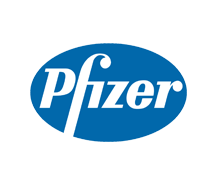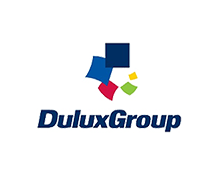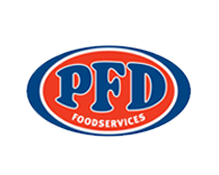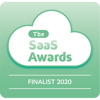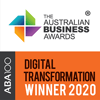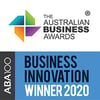Predictive Analytics
Predictive analytics: Predictive analytics is the process of using data to make predictions about future events. This can be done using a variety of methods, including machine learning, statistical analysis, and data mining. Predictive analytics can be used to find trends, make predictions, and make decisions.
Predictive analytics is a powerful tool that has revolutionized the way organizations make decisions. By harnessing data from multiple sources, predictive analytics can provide insights into future trends and behaviors to help companies anticipate customer needs and drive competitive advantage. This article will explore how predictive analytics works, the types of data it uses, and its potential applications for business success.
Organizations today have access to more information than ever before. Predictive analytics leverages this vast amount of data to identify patterns, uncover hidden relationships between variables, and generate predictions about what could happen in the future. From sales forecasts to predicting customer behavior, predictive analytics enables businesses to gain valuable insights into their customers' preferences and create tailored strategies for growth.
The power of predictive analytics lies in its ability to reveal meaningful patterns in large datasets. With advanced algorithms like artificial intelligence (AI) and machine learning (ML), these models are able to accurately assess a variety of factors such as demographics, purchasing history, location, lifestyle choices, etc., allowing companies to better understand their target audience and tailor their offerings accordingly. In addition, by incorporating real-time feedback loops into the model's development process, organizations can ensure they remain up-to-date with changing consumer interests over time.
What Are Examples Of Predictive Analytics?
Predictive analytics is a form of data analysis that encompasses techniques such as machine learning, data mining, predictive modeling and artificial intelligence. By leveraging historical datasets, predictive analytics can be used to identify patterns in data with the aim of predicting future outcomes or behavior. This is achieved through complex algorithms and mathematical models which are applied on various forms of data such as neural networks, decision trees, etc.
Data analysts use these methods to build models that enable them to make predictions about potential customer trends, purchasing behaviors and other business decisions. Predictive analytics can also help businesses better understand their customers by analyzing relationships between different elements within datasets. Additionally, they provide insights into user preferences which enables companies to personalize product offerings accordingly. Companies use this information for a range of purposes including marketing campaigns, product pricing strategies and optimizing operational processes.
What Are The 4 Steps In Predictive Analytics?
Predictive analytics is an important process that helps businesses and organizations make informed decisions. It involves analyzing current data to predict future outcomes, based on patterns in the past. The four steps in predictive analytics are collecting and preparing data, developing predictive models, conducting predictive analysis, and deploying results.
Data scientists use various tools such as KNIME Analytics Platform or open source software like R to collect, prepare, analyze and deploy data for predictive analytics. Current data is fed into these tools along with historical data so they can develop accurate predictive models. Through statistical analysis including regression analysis, machine learning algorithms and logistic regressions, a model is created which then enables them to conduct predictive analysis. Finally, the results of this analysis are deployed - either via automated alerts or dashboards - allowing users to quickly identify trends or signals in their business environment before acting upon it.
What Are The Three Different Types Of Predictive Analytics?
Predictive analytics is a type of data science used to forecast outcomes and make predictions based on past performance. There are three main types of predictive analytics: prescriptive, descriptive, and predictive. Prescriptive analytics use algorithms to analyze data and recommend actions that can be taken in order to optimize the desired outcome. Descriptive analytics involve using statistical methods such as time series analysis or logistic regression to summarize large datasets into useful insights about past events. Lastly, predictive models use multiple linear regression or deep learning techniques to predict future trends and behaviors.
Each type of predictive analytics requires different approaches when collecting, analyzing, interpreting, and presenting data; however, all have one commonality—they rely heavily on mathematics for results accuracy. For example, linear regression is commonly used with least squares estimation for prediction modeling; likewise, logistic regressions are utilized extensively in classification tasks like customer segmentation or fraud detection. Additionally, neural networks often require extensive training with labeled data sets before they can accurately generate accurate predictions from new input values. While each approach has its own advantages and disadvantages depending on the task at hand, there is no denying the power of predictive analytics when it comes to determining future outcomes.
What Is Predictive Analytics In Simple Words?
Predictive analytics is the process of using big data, advanced analytics tools and techniques to predict future outcomes. It involves collecting vast amounts of data through methods such as customer churn, time series analysis and regression models. This data is then analyzed using statistical techniques and predictive analytics techniques such as k nearest neighbor or linear regression to gain insights that can be used to make decisions.
By understanding historical trends in a given dataset, businesses are able to better anticipate future events, allowing them to take proactive action rather than reactive measures when it comes to decision-making. By combining various pieces of information from multiple sources, predictive analytics provides an accurate picture of what could happen in the near future — providing invaluable assistance for marketers trying to maximize their campaigns’ effectiveness. Ultimately, predictive analytics allows companies to stay ahead of the competition by leveraging the latest technology and best practices in order to increase profits while reducing costs associated with uncertainty.
Conclusion
Predictive analytics is a valuable tool for understanding the future. With its ability to analyze data, it can be used to produce insights that help inform decisions and strategies. Predictive analytics works by analyzing past events in order to predict future outcomes. It involves four key steps: collecting data, exploring the data, creating models, and testing predictions. There are three main types of predictive analytics: classification, regression and time-series forecasting.
The power of predictive analytics lies in its potential to provide organizations with improved decision making capabilities as well as increased efficiency due to better resource allocation. By leveraging this technology, companies can gain a competitive edge over their rivals. Additionally, predictive analytics can also be utilized for customer segmentation, fraud prevention and risk management purposes.
Overall, predictive analytics provides organizations with invaluable insights into trends and patterns which can then be used to drive business success. As such, it has become an essential tool for many industries looking to stay ahead of the curve in today’s ever-changing market landscape. While there will always be uncertainty associated with predicting the future, predictive analytics allows businesses to make more informed decisions based on historical evidence rather than guesswork or gut feeling alone.
PREVIOUS NARROW AI GLOSSARY TERM
NEXT NARROW AI GLOSSARY TERM
Predictive Analytics Definition
Exact match keyword: Predictive Analytics N-Gram Classification: Predictive Analytics Software, Predictive Modeling, Predictive Intelligence Substring Matches: Analytics, Predictive Long-tail variations: "Predictive Analytics Solutions", "Real-time predictive analytics" Category: Business, Technology Search Intent: Research, Solutions, Purchase Keyword Associations: Machine Learning, Data Mining, Artificial Intelligence Semantic Relevance: Machine Learning, Data Mining, Artificial Intelligence Parent Category: Business Subcategories: Machine Learning,Data Mining ,Artificial Intelligence Synonyms: Machine Learning ,Data Mining ,Artificial Intelligence Similar Searches: AI ,Machine Learning Systems ,Smart Data Analysis Geographic Relevance Global Audience Demographics IT professionals. Business professionals. Students. Researchers Brand Mentions IBM. Oracle. SAP Industry-specific data A/B testing. Regression Modeling. Root Cause Analysis Commonly used modifiers“Software” . ”Solutions” . ”Real-time” Topically Relevant Entities Machine Learning. Data Mining. Artificial Intelligence. Predictive Analytics Software . Predictive Modeling Tools . Predictive Intelligence Solutions"Larry will be our digital expert that will enable our sales team and add that technological advantage that our competitors don't have."
Kerry Smith
CEO, PFD Foods
$1.6 billion in revenue 
"Lion is one of Australasia’s largest food and beverage companies, supplying various alcohol products to wholesalers and retailers, and running multiple and frequent trade promotions throughout the year. The creation of promotional plans is a complicated task that requires considerable expertise and effort, and is an area where improved decision-making has the potential to positively impact the sales growth of various Lion products and product categories. Given Complexica’s world-class prediction and optimisation capabilities, award-winning software applications, and significant customer base in the food and alcohol industry, we have selected Complexica as our vendor of choice for trade promotion optimisation."
Mark Powell
National Sales Director, Lion
"At Liquor Barons we have an entrepreneurial mindset and are proud of being proactive rather than reactive in our approach to delivering the best possible customer service, which includes our premier liquor loyalty program and consumer-driven marketing. Given Complexica’s expertise in the Liquor industry, and significant customer base on both the retail and supplier side, we chose Complexica's Promotional Campaign Manager for digitalizing our spreadsheet-based approach for promotion planning, range management, and supplier portal access, which in turn will lift the sophistication of our key marketing processes."
Richard Verney
Marketing Manager
Liquor Barons

"Dulux is a leading marketer and manufacturer of some of Australia’s most recognised paint brands. The Dulux Retail sales team manage a diverse portfolio of products and the execution of our sales and marketing activity within both large, medium and small format home improvement retail stores. We consistently challenge ourselves to innovate and grow and to create greater value for our customers and the end consumer. Given the rise and application of Artificial Intelligence in recent times, we have partnered with Complexica to help us identify the right insight at the right time to improve our focus, decision making, execution, and value creation."
Jay Bedford
National Retail Sales Manager
Dulux

"Following a successful proof-of-concept earlier this year, we have selected Complexica as our vendor of choice for standardizing and optimising our promotional planning activities. Complexica’s Promotional Campaign Manager will provide us with a cloud-based platform for automating and optimising promotional planning for more than 2,700 stores, leading to improved decision-making, promotional effectiveness, and financial outcomes for our retail stores."
Rod Pritchard
Interim CEO, Metcash - Australian Liquor Marketers
$3.4 billion in revenue 
"After evaluating a number of software applications and vendors available on the market, we have decided to partner with Complexica for sales force optimisation and automation. We have found Complexica’s applications to be best suited for our extensive SKU range and large set of customers, being capable of generating recommendations and insights without burdening our sales staff with endless data analysis and interpretation.
Aemel Nordin
Managing Director, Polyaire
"DuluxGroup is pleased to expand its relationship with Complexica, a valued strategic partner and supplier to our business. Complexica’s software will enable DuluxGroup to reduce the amount of time required to generate usable insights, increase our campaign automation capability, personalise our communications based on core metrics, and close the loop on sales results to optimise ongoing digital marketing activity."
James Jones
Group Head of CRM, DuluxGroup
"Instead of hiring hundreds of data scientists to churn through endless sets of data to provide PFD with customer-specific insights and personalised recommendations, Larry, the Digital Analyst® will serve up the answers we need, when we need them, on a fully automated basis without the time and manual processes typically associated with complex analytical tasks.”
Richard Cohen
CIO, PFD Foods
$1.6 billion in revenue 
"As a global innovator in the wine industry, Pernod Ricard Winemakers is always seeking ways to gain efficiencies and best practices across our operational sites. Given the rise of Artificial Intelligence and big data analytics in recent times, we have engaged Complexica to explore how we can achieve a best-in-class wine supply chain using their cloud-based software applications. The engagement is focused on Australia & New Zealand, with a view to expand globally."
Brett McKinnon
Global Operations Director, Pernod Ricard Winemakers
"70% - 80% of what we do is about promotional activity, promotional pricing -- essentially what we take to the marketplace. This is one of the most comprehensive, most complex, one of the most difficult aspect of our business to get right. With Complexica, we will be best in class - there will not be anybody in the market that can perform this task more effectively or more efficiently than we can."
Doug Misener
CEO, Liquor Marketing Group
1,400+ retail stores 
"The key thing that makes such a difference in working with Complexica is their focus on delivering the business benefits and outcomes of the project."
Doug Misener
CEO, Liquor Marketing Group
1,400+ retail stores 
"Australia needs smart technology and people, and it has been a great experience for me to observe Complexica co-founders Zbigniew and Matt Michalewicz assemble great teams of people using their mathematical, logic, programming, and business skills to create world-beating products. They are leaders in taking our bright graduates and forging them into the businesses of the future."
Lewis Owens
Chairman of the Board, SA Water 
"Having known the team behind Complexica for some years ago now, I am struck by their ability to make the complex simple - to use data and all its possibilities for useful purpose. They bring real intelligence to AI and have an commercial approach to its application."
Andrew McEvoy
Managing Director, Fairfax Media - Digital 
"I have worked with the team at Complexica for a number of years and have found them professional, innovative and have appreciated their partnership approach to delivering solutions to complex problems."
Kelvin McGrath
CIO, Asciano 
“Working with Complexica to deliver Project Automate has been a true partnership from the initial stages of analysis of LMG’s existing processes and data handling, through scoping and development phase and onto delivery and process change adoption. The Complexica team have delivered considerable value at each stage and will continue to be a valued partner to LMG."
Gavin Saunders
CFO, Liquor Marketing Group 
“Complexica’s Order Management System and Larry, the Digital Analyst will provide more than 300 Bunzl account managers with real-time analytics and insights, to empower decision making and enhanced support. This will create more time for our teams to enable them to see more customers each day and provide the Bunzl personalised experience.”
Kim Hetherington
CEO, Bunzl Australasia 
"The team behind Complexica develops software products that are at the cutting edge of science and technology, always focused on the opportunities to deliver a decisive competitive edge to business. It has always been a great experience collaborating with Matthew, Zbigniew and Co."
Mike Lomman
GM Demand Chain, Roy Hill Iron Ore 
"The innovations that the Complexica team are capable of continue to amaze me. They look at problems from the client side and use a unique approach to collaborating with and deeply understanding their customers challenges. This uniquely differentiates what they bring to market and how they deliver value to customers."
John Ansley
CIO, Toll Group 
"Rather than building out an internal analytics team to investigate and analyse countless data sets, we have partnered with Complexica to provide our sales reps with the answers they need, when they need them, on a fully automated basis. We are excited about the benefits that Larry, the Digital Analyst will deliver to our business.”
Peter Caughey
CEO, Coventry Group 
“Complexica’s Order Management System and Larry, the Digital Analyst will provide more than 300 Bunzl account managers with real-time analytics and insights, to empower decision making and enhanced support. This will create more time for our teams to enable them to see more customers each day and provide the Bunzl personalised experience.”
Kim Hetherington
CEO, Bunzl Australasia 
"After an evaluation process and successful proof-of-concept in 2016, we have chosen to partner with Complexica to upgrade the technological capability of our in-field sales force. The next-generation Customer Opportunity Profiler provided by Complexica will serve as a key tool for sales staff to optimise their daily activities, personalise conversations and interactions with customers, and analyse data to generate actionable insights."
Stephen Mooney
Group Sales Capability Manager, DuluxGroup
$1.7 billion in revenue
"After evaluating a number of software systems available in the marketplace, we have ultimately selected Complexica as our vendor of choice for sales force automation and CRM. Given the large SKU range we carry and very long tail of customers we serve, Complexica’s applications are best suited to deal with this inherent complexity without burdening our staff with endless data entry."
Nick Carr
CEO, Haircaire Australia
Australia's largest distributor of haircare products
“Asahi Beverages is Australia’s largest brewer, supplying a leading portfolio to wholesalers and retailers, including some of Australia’s most iconic brands. Last year Asahi Beverages acquired Carlton & United Breweries, which is its Australian alcohol business division. To harness the strength of our expanded portfolio, we partner with our customers to run multiple and frequent trade promotions throughout the year, delivering long-term growth for both our business and theirs. Given the inherent complexity in optimising promotional plans and our continued focus on revenue and growth management, we have selected Complexica as our vendor of choice after a successful Proof-of-Concept of its world-class optimisation capabilities.”
Kellie Barnes
Group Chief Information Officer
Asahi Beverages
"Dulux is a leading marketer and manufacturer of some of Australia’s most recognised paint brands. The Dulux Retail sales team manage a diverse portfolio of products and the execution of our sales and marketing activity within both large, medium and small format home improvement retail stores. We consistently challenge ourselves to innovate and grow and to create greater value for our customers and the end consumer. Given the rise and application of Artificial Intelligence in recent times, we have partnered with Complexica to help us identify the right insight at the right time to improve our focus, decision making, execution, and value creation."
Jay Bedford
National Retail Sales Manager, DuluxGroup
"At Liquor Barons we have an entrepreneurial mindset and are proud of being proactive rather than reactive in our approach to delivering the best possible customer service, which includes our premier liquor loyalty program and consumer-driven marketing. Given Complexica’s expertise in the Liquor industry, and significant customer base on both the retail and supplier side, we chose Complexica's Promotional Campaign Manager for digitalizing our spreadsheet-based approach for promotion planning, range management, and supplier portal access, which in turn will lift the sophistication of our key marketing processes."
Richard Verney
Marketing Manager, Liquor Barons







